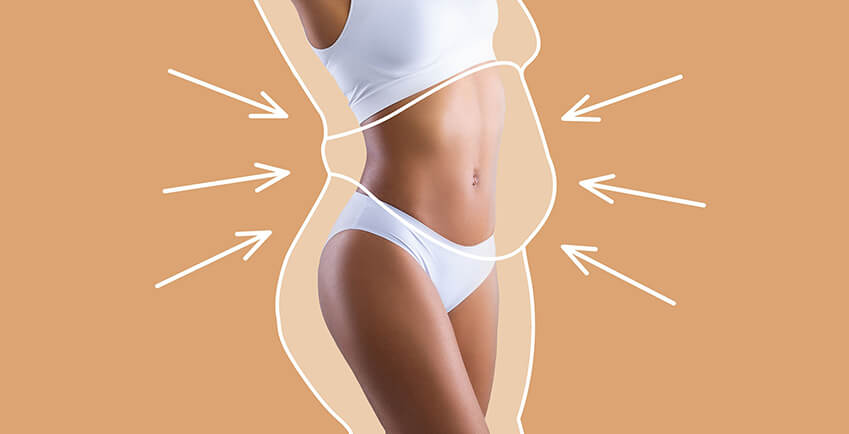Liposuction is one of the most popular cosmetic procedures worldwide. It’s quick, effective, and offers a visible transformation when done correctly. But a question I hear often in my practice is: “Is liposuction safe?” If you’re considering body contouring but are worried about the risks, you’re not alone — and you’re right to ask.
The good news? Yes, liposuction is safe — when performed by a board-certified plastic surgeon in a proper medical facility. However, like any surgical procedure, it’s not risk-free. This blog will walk you through the safety profile, risks, and essential precautions that can make all the difference.
What exactly is Liposuction?
Liposuction is a surgical technique where unwanted fat is suctioned out from areas like the abdomen, thighs, arms, back, or chin to sculpt and reshape the body. It’s not a weight-loss surgery — it’s a body contouring procedure for people who are already near their ideal weight but struggle with stubborn fat deposits.
Safety in Liposuction: It starts with your surgeon
When it comes to liposuction safety, who does your surgery matters more than anything else. Choosing a board-certified plastic surgeon ensures that your doctor has:
- MCh. Or DNB degree in Plastic Surgery
- Is recognised by the Association of Plastic Surgeons of India (APSI) and/or Indian association of Aesthetic Plastic Surgeons (IAAPS)
- Operates only in licensed, accredited hospitals or surgical centers
- Follows global safety protocols
Never hesitate to ask your surgeon about their qualifications, experience, and safety record.
Are you the right candidate for Liposuction?
Liposuction is not suitable for everyone. The best candidates are:
- Physically healthy and without major medical issues
- Have realistic expectations and understand that liposuction is not a substitute for diet and exercise. Liposuction reshapes your body, but it doesn’t transform your lifestyle. Long-term success requires a commitment to healthy living.
- Have stubborn fat deposits that don’t respond to lifestyle changes
Patients with significant obesity, uncontrolled diabetes, heart disease, or bleeding disorders may be at higher risk for complications and are usually not ideal candidates.
How Safe Is Liposuction Really?
When performed correctly, liposuction is among the safer cosmetic surgeries. But like all surgeries, there are risks.
Common side effects (temporary):
- Swelling and bruising
- Soreness for a few days
- Numbness in the treated areas
Rare but serious risks:
- Fat embolism – where fat enters the bloodstream and travels to the lungs or brain (rare, but potentially life-threatening)
- Fluid imbalance – due to excessive suction or infiltration
- Infection – if sterile protocols are compromised, can lead to life threatening necrotising infections
- Contour irregularities or skin necrosis – especially if the surgery is overly aggressive
- Internal organ injury – extremely rare, but reported in unqualified hands
A well-trained plastic surgeon takes multiple precautions to minimize every one of these risks.
Bulk Reduction Liposuction: More Fat, More Caution
In recent years, “bulk reduction liposuction” — removing large volumes of fat in one session — has gained popularity. However, this approach carries higher risks and must be done with strict fluid management, proper monitoring, and hospital-grade support with full time anesthesia backup.
Guidelines suggest not removing more than 5–6 liters of fat in a single session without hospital admission and overnight monitoring. Board-certified plastic surgeons often choose to stage the procedure across multiple sittings to ensure maximum safety. So if you’re offered “full-body lipo” or “360-degree mega lipo,” ask questions about how much fat will be removed and how safety will be ensured. Bulk fat removal should never be attempted in a small clinic setup or by non-qualified professionals.
Day-Care or Hospital Stay? What You Should Know
One of the most common questions patients ask is—“Will I need to stay overnight after liposuction?”
The answer depends on the volume of fat removed, your medical fitness, and the protocol followed by your plastic surgeon.
- For small to moderate volume liposuction (under 4–5 liters), most board-certified surgeons perform it as a day-care procedure, meaning you can go home the same day after observation.
- For large-volume liposuction (above 5 liters), or if you’re combining liposuction with other surgeries like a tummy tuck or breast surgery, a 24–48 hour hospital stay is usually recommended to monitor vital signs, fluid balance, and pain levels.
If your surgeon tells you that day-care liposuction is planned, you should still be alert to warning signs after going home. These include:
Red Flag Signs That Need Urgent Medical Attention
- Increasing pain or swelling despite medications
- Foul-smelling or discoloured fluid from the dressing
- Fever over 100.4°F (38°C)
- Sudden breathlessness or chest pain
- Leg swelling or calf pain (possible clot)
- Dizziness, persistent vomiting, or blackouts
- Urine output is significantly reduced
Even though these complications are rare, early recognition can save lives.
That’s why your plastic surgeon should give you a clear list of post-op instructions, a 24-hour contact number, and ideally review you within 24–48 hours.
Always choose a center where there’s access to emergency support, especially for larger procedures.
What Happens After Surgery?
Recovery after liposuction is usually smooth but must be taken seriously. Your surgeon will advise:
- Compression garments to reduce swelling
- Antibiotics and pain medications
- Fluid intake monitoring
- Avoiding strenuous activity for a few weeks
- Attending scheduled follow-ups
Most patients resume routine activities within a few days, but full recovery and results may take 6–12 weeks.
The Role of the Patient in Safety
Safety in liposuction is not only about what your surgeon does — you, the patient, play an equally critical role. Following pre- and post-operative instructions can dramatically reduce your risk of complications.
Here are some essential steps:
- Disclose your complete medical history, including allergies, medications, supplements, and previous surgeries.
- Stop smoking at least 4 weeks before and for 2 weeks after surgery because it impairs healing, and significantly increases the risk of skin necrosis
- Avoid alcohol for at least 72 hours before surgery and for 7 days after because it affects blood clotting, liver metabolism, and may interfere with anaesthesia.
- Follow fasting instructions and pre-operative precautions strictly.
- Be alert to red flags post-surgery. Contact your surgeon immediately if any of those occur.
What about Non-Plastic Surgeons offering Liposuction?
Unfortunately, liposuction is sometimes performed by non-plastic surgeons, dermatologists, or even unlicensed practitioners in spas or salons. This is dangerous and illegal.
Only a board-certified plastic surgeon is trained to manage complications if they arise, handle emergencies, and most importantly — prevent them in the first place.
Liposuction safety checklist
Before undergoing liposuction, make sure:
✅ Your surgeon is board-certified in plastic surgery
✅ The surgery is performed in a licensed facility
✅ You are an ideal candidate after full evaluation
✅ You have discussed realistic goals and possible complications
✅ You follow all pre- and post-operative instructions
✅ You report any warning signs early
Safety is a system, not a promise
Liposuction can be life-changing — improving not just your appearance but your confidence. But it’s not a shortcut, and it’s not risk-free. Choosing the right surgeon, asking the right questions, and playing your part in recovery can help you achieve results safely and responsibly.
Cosmetic surgery safety is not about being fearless — it’s about being informed and prepared.
Dr. Amiteshwar Singh
Phone: +91-7973494548
IAAPS Membership No.: 2024/PB/51
Registered Email: dramiteshwar@gmail.com
Disclaimer : The opinions here are personal views of the authors. IAAPS is not responsible. All members may not have the same scientific view point

